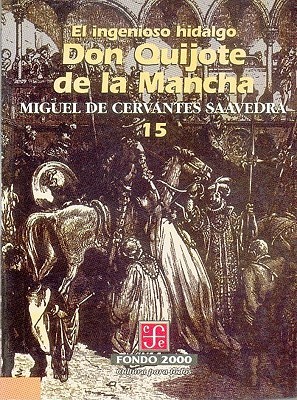Many of you already know by now that my native language is Spanish, not English. And you’ve probably wondered on one point or another (or maybe not, but I will imagine you have for the purpose of this post), if I read books in Spanish too.
 That’s the beauty of translated books. They bring people from all over the world together in just a few pages. If it weren’t for translated books, I wouldn’t have had the pleasure of reading amazing books like the the Bible or foreigners to read Don Quixote de la Mancha. And imagine if I had never learned English? In that case, I would have never been able to read Pride and Prejudice, Harry Potter, Black Beauty and every other YA book I’ve read in the last years!
That’s the beauty of translated books. They bring people from all over the world together in just a few pages. If it weren’t for translated books, I wouldn’t have had the pleasure of reading amazing books like the the Bible or foreigners to read Don Quixote de la Mancha. And imagine if I had never learned English? In that case, I would have never been able to read Pride and Prejudice, Harry Potter, Black Beauty and every other YA book I’ve read in the last years!
Book translations are important, there’s no doubt about that. And even though I’m no expert on the subject, as a reader I know that translators have guidelines when it comes to translating works in a particular language mostly because of culture, that they sometimes have to adapt the books so they can be understood, and that’s fine, I understand. But my major concern is when sometimes they are not careful enough to preserve the essence of a story. They don’t give readers the quality story they deserve.
Interesting… I’ve sold Indonesian, Polish, and Chinese (Taiwan) rights, and my contracts stipulate that they stay true to the original manuscript. But how would I ever really know unless someone who reads both told me otherwise?
I don’t need them to say the exact same words, but I do need them to deliver what the author aimed for. That the story stays true to itself.
So I went about and asked a couple of authors the same thing to get their point of view of what they wished were preserved in translations:
Humor. When it comes to translation, that’s what I hope would be conveyed properly/preserved. For me, it’s the thing that makes my stories a little different – they aren’t quite traditional mystery or thriller or romance because of the character’s sense of humor. But that’s something that doesn’t always translate across language and culture.
That’s not Nina, it’s her cat! 😀 As reader and author, I mainly look at the plot when choosing books, and don’t care much if they are translated or not. A good book, to me, keeps the same qualities that I want mine to keep for my book: a poetic language, that may possibly take a few licenses in order to keep the humor, the relatability and the flow. However, I appreciate it being as precise as possible when it can be, without compromising the humor and poetry.
I use a lot of humor in general when I write, but also a lot of play on words, alliterations and word-puns, so when I am trying to translate my works ( I am doing a preliminary translation so my English- speaking friends can read the draft I’m working on at the moment,) rather than translating it literally, I have taken some “poetic license” and changed certain objects, comparison and even certain situations (although that is very rare,) to get the gist and the spirit across.You also have to weigh in the differences in ‘cultural references’ (differences in the build-up and history and tradition of the societies , and thereby in occurrence of both objects and situations, ) as well as the “ moods” of the different languages.It’s something I struggle a bit with, since I want the story in the different copies to be as much the same as possible, but to me it’s worth trying to get the point across in another way and still keep the humor and poetics of the text.
But anyway, this small view (rant?) about translation in books could go on and on but I’ll stop right here in fear of boring you out of your socks.
What I do want to know about is your own experience with translated books. How important do you think a good translation is? Do you ever fear you are missing out when reading a translated book? What aspect(s) of a book would you want to be preserved the most? Let me know! 🙂







I know so many people on Twitter from other countries who always prefer to read the book in the original English because it's better than the translated books. But unfortunately not everyone is fluent enough to do that. Great post & very relevant topic!
Exactly! I'm one of those peoples, and sometimes I'm pestered by people that instead of reading books in English, I should support my own language. But it's not the same thing, specially when translated books are not good.
I fully understand every single one of your problems because like you, I'm from a non-English speaking country, Hungary. I prefer reading books in English but I read in Hungarian as well. There was a time period while I didn't buy any translated book but since then I figured out which publishers have better translators. My biggest problem with translated books is how it's expected of translators to translate word by word. In many genres authors use slang, mostly I think this is true to contemporary romance. Americans have loads of slang words and phrases but we Hungarians don't. When a translator still tries to make it slang like, maybe by using slang that was popular 50 years ago (I'm not making this up), instead of writing in a normal style like most Hungarians speak that's just plainly unbearable. I get that it's very important to value what the author wrote but should we value it to the level of ridiculousness? I'm not sure if this is a problem for you but this is what annoys me the most.
Great post! 🙂
Veronika @ Reading Is Dreaming With Open Eyes
Agh, slangs! When I read the translated version of HP I was horrified about the slangs used by the translator. I'm 100% sure Harry, Ron, Hermione or any of the other characters would NEVER use such horrible (sometimes outdated) phrases. It bothered me, especially when they would also substitute the spells! There must be a balance between the author's work and the translator's. The translation must work and complement the original story.
I get what you mean. My native language is German and I absolutely refuse to wait for the German translations. First off – sometimes it even takes a year or two until the translations of popular authors' books come out. Besides, there's so much quality getting lost in the translations, it's just not worth it.
I'm like that too. If I can understand the language I'd definitely want to read it in its original language. However, if they are translated works from other languages, I think it would be time to check them out in Spanish instead of English. It would be the same thing.
Translations are definitely difficult because a lot of the culture and soul, like you say, just doesn't carry across. The meaning might be there, but the connotations, the rhythm of the words, it is all different.
Yes! When I try to translate in Spanish a few of my favorite English phrases, it annoys me that it doesn't sound like they should be. Now imagine that in a book!
Melissa, this is such a great post! And so important. As an English speaker, I can't say that I have ever read a translated book before. I have bought some foreign editions for my collections but never read them (sadly English is my only language). As an assistant though I've met authors who would love to have their work translated to reach new readers. The trick then is finding a reader who can and will read both the English and translated version and let you know if the translation is good. Unless the author knows both languages you either have to find that reader or trust that the translator is going a good job. It is a tricky issue and one we certainly should talk about more!
Absolutely! I think I would like to start helping out in this matter. Now I wish I knew more languages! 😀